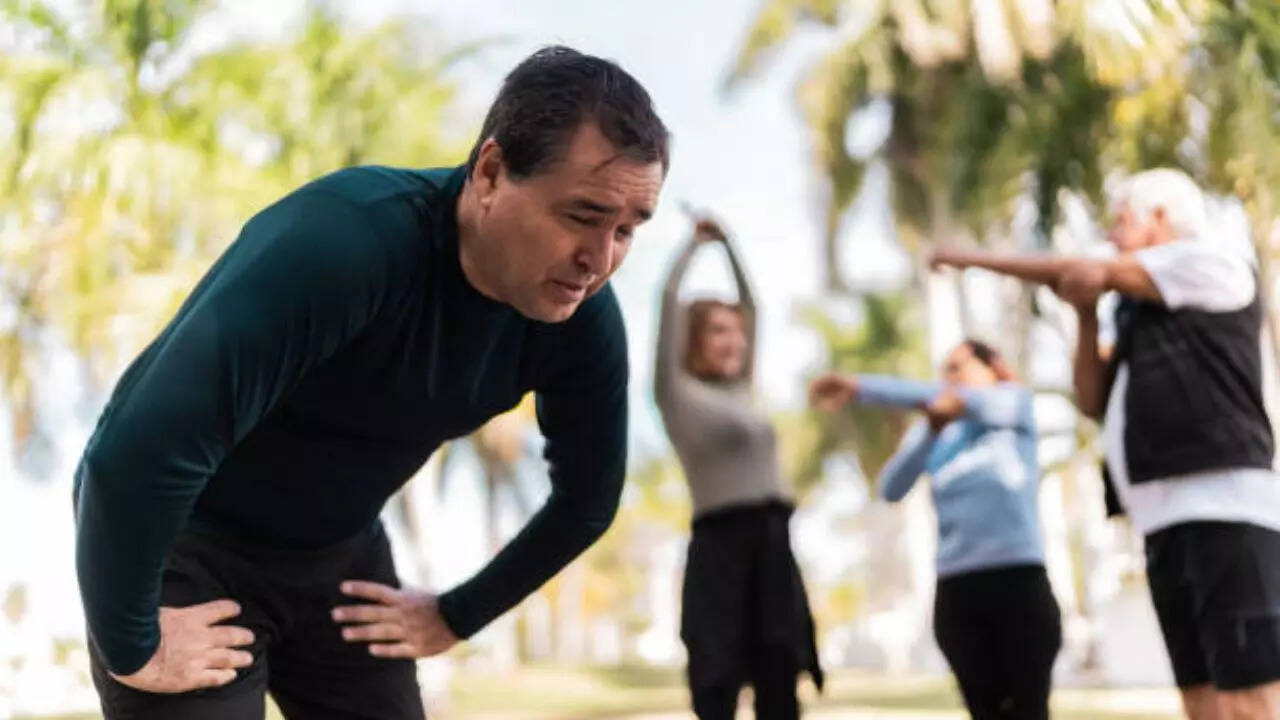Heart attacks are imagined as something that happens much later in life, but recent cases tell a different story. The sudden death of 35-year-old Microsoft engineer Pratik Pandey shocked many, highlighting how heart-related risks are becoming real even for those in their early or mid-30s. He was reportedly stressed and overworked, yet had no known health problems. This has raised questions: what are the early signs of a heart attack in the 30s, and why do they often go unnoticed?
Chest discomfort that comes and goes
Chest pain must be sharp and unbearable to signal a heart attack. In reality, the discomfort can be mild, often dismissed as acidity, muscle strain, or just “work stress.” In younger adults, this pain may come and go, and might not even feel like pain, it could be heaviness, squeezing, or burning. Ignoring these repeated signals is risky.
Shortness of breath beyond normal fatigue

Getting breathless only happens in old age or with weak lungs. In the 30s, unexplained breathlessness, especially after light activity or even at rest, can be a red flag. It often shows up earlier than chest pain because the heart is struggling to pump efficiently. Sadly, this is often brushed off as being “out of shape” or “just tired.”
Unusual sweating during rest
Sweating is only linked to heat, exercise, or nervousness. Breaking into a cold sweat while sitting at a desk or waking up drenched at night could mean the heart is under stress. This silent alarm is often overlooked, but in cases like Pratik Pandey’s, long working hours and stress could have added invisible pressure on the cardiovascular system.
Jaw, neck, or shoulder twinges
Heart pain always strikes in the chest area. In younger people, heart distress often radiates in unexpected places, jaw, neck, back, or shoulders. This indirect pain often delays recognition because it doesn’t match the “classic” heart attack image most have in mind.

Fatigue that feels different
Feeling drained is just part of modern life. There is a difference between regular tiredness and fatigue linked to heart strain. When exhaustion lingers even after proper rest, or when daily activities suddenly feel harder, it may be the body signaling reduced blood flow to muscles and tissues.
Indigestion that isn’t really indigestion
Stomach issues are separate from heart issues. For many in their 30s, heart distress begins with a feeling of indigestion, nausea, or pressure in the upper abdomen. This overlap often tricks people into self-treating with antacids, while the heart quietly struggles.Disclaimer: This article is for informational purposes only. It is not a substitute for professional medical advice, diagnosis, or treatment. Always seek the advice of a qualified healthcare provider for any health-related concerns.


